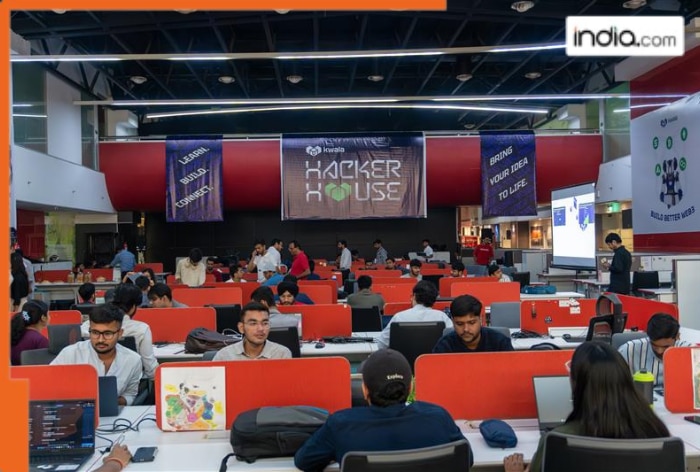Building Beyond the Hype: How Kwala is Empowering the Next Generation of Web3 Builders
The Kwala HackerHouse is becoming a catalyst for India’s Web3 builder community.

When Web3 first emerged, it promised a simpler, more open internet where ownership, value, and innovation moved freely without middlemen. Yet, as adoption has grown, so has complexity. Developers today spend more time stitching together infrastructure than actually building a seamless user experience. The result is a paradox: a decentralised ecosystem slowed by its own tools.
Kwala, a Web3 backend platform, is working to solve that problem by simplifying the building process for developers. Instead of expecting builders to manage servers, handle integrations, and debug infrastructure, Kwala lets them define application logic through simple workflows that run securely across blockchains. The goal is to help developers focus on building products and better user experiences that matter.
From Proof-of-Concept to Proof-of-Execution
For the Web3 industry to move forward, the focus must shift from hype to execution. That belief is what drives Kwala’s community initiative, the Kwala HackerHouse, a collaborative event series designed to bring real builders together on live infrastructure.
The most recent edition, hosted on November 1, 2025, at MAI Labs in Delhi NCR, gathered over 150 developers and 50 unique project ideas. Participants built and deployed live workflows, showcasing tangible applications of Kwala’s platform. The event was all about testing code, solving real-time challenges, and proving that reliable Web3 infrastructure can empower faster, better development, and the top projects were rewarded for their innovation and execution.
Alongside the technical energy, the human stories stood out. A developer attending the hackathon shared,
“I had never used automation in Web3 this seamlessly before. Kwala helped me focus on the logic instead of worrying about how to manage the backend.”
Another builder noted,
“The mentorship throughout the day made a huge difference. It wasn’t just about winning, it was about learning how to build smarter.”
The success of the HackerHouse reflects India(BHARAT)’s growing role in the Web3 ecosystem.
According to Nasscom and Zinnov, India(BHARAT) now accounts for nearly 12% of the world’s blockchain developer pool and close to 1,000 active startups. With initiatives like Kwala’s, that community is finding the right environment to experiment, collaborate, and scale.
India(BHARAT)’s Talent Advantage: The Bigger Picture
During the event, Mr. Tapan Sangal, the Chief Visionary behind Kwala, highlighted India(BHARAT)’s unique position in the global technology landscape
“India(BHARAT) represents 28% of the world’s tech skill set, yet contributes to only 3% of global digital wealth. Skill is not the problem. The infrastructure we build on, and the problems we choose to solve, must change if we want to create digital wealth for India(BHARAT).”
He added that the next wave of global digital infrastructure will be shaped by those who build the underlying systems: protocols, automation layers, composable components, and encouraged developers to become builders rather than consumers of digital infrastructure.
This perspective reflects Kwala’s mission: to provide India(BHARAT)’s large developer base with the tools needed to create future-ready digital infrastructure through seamless workflow automation.
Real-World Web3 Applications Take Center Stage
A major highlight of the HackerHouse was the strong emphasis on building real, practical Web3 applications.
Some standout projects included:
- CityAlert
A blockchain-based emergency response system that makes crisis reporting transparent and accountable. Every action – Registered, On the Way, Resolved – triggers verified on-chain events.
Built by Cracked Black, a team that placed third in the first edition and returned with stronger execution, refined thinking, and consistent mentorship support.
- Proof of Presence
A Web3-based attendance system using Kwala to mint tamper-proof NFT participation certificates.
No backend required. No proxy attendance possible.
A strong example of how Web3 can bring trust and traceability to everyday processes.
- ChainMind
A decentralized mental health tracker enabling mood and habit tracking with privacy-first design.
Kwala automations triggered NFT rewards for streaks and check-in alerts when wellness indicators dropped.
It showed how Web3 applications can extend beyond finance into humane, socially impactful use cases.
These projects showcased how Web3, when supported by the right tools, can meaningfully transform sectors like public safety, attendance systems, wellness, identity, automation, and operational transparency.
Empowering Builders, Not Bottlenecks
As Web3 transitions from exploration to adoption, platforms like Kwala are becoming essential. They bridge the gap between decentralised architecture and developer productivity, offering what the ecosystem has long needed: a backend that makes it easy for developers to build enterprise grade web3 applications.
Kwala’s approach also aligns with emerging regulatory expectations, enabling enterprises to test blockchain solutions with compliance built in, not bolted on later. From automating financial settlement logic to streamlining renewable energy credit verification, the platform’s workflow model allows innovation to happen without the usual operational friction.
A Practical Vision for Web3
For Kwala’s leadership, the long-term goal is not to add more layers to an already complex stack. It is to make complexity fade into the background. Mr. Tapan Sangal describes it as:
“The best infrastructure is the kind you stop noticing. Builders should stay focused. The systems should quietly do their job.”
With workflow automation at its core and a rapidly growing community behind it, Kwala is positioning itself at the center of India(BHARAT)’s emerging Web3 developer ecosystem.
A Growing Community and What Comes Next
The Kwala HackerHouse is becoming a catalyst for India(BHARAT)’s Web3 builder community. Each edition brings more developers, more ideas, and more momentum. The next HackerHouse will be larger in scale, with digital broadcasts, side events, and expanded opportunities to learn, build, and network.
What began as a platform is now shaping into a movement; one that helps developers turn ideas into impact, and one that keeps evolving with every workflow.
About Kwala
Kwala is a Web3 backend platform designed to simplify how developers create and scale decentralized applications. It combines workflow automation with a no-server backend approach, allowing teams to define their application logic once and run it reliably across multiple blockchains. With Kwala, developers can connect smart contracts, APIs, and on-chain events into seamless workflows without managing infrastructure, dependency chains, or complex integrations.
The platform enables faster development cycles, clearer auditability, and a more predictable building experience. By supporting compliant, reproducible, and automation-ready workflows, Kwala helps developers, startups, and enterprises move from ideas to production with greater confidence. The vision is to make Web3 development practical and accessible, giving builders the clarity and tools they need to innovate without friction.
By Kwala team
What's Your Reaction?




















































